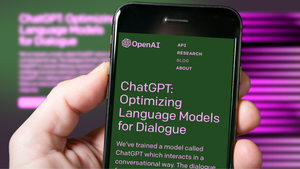ChatGPT maker OpenAI filed legal papers earlier this week seeking to dismiss elements of a copyright infringement lawsuit filed against it by three authors, including comedian and writer Sarah Silverman.
It said that claims in that lawsuit of “vicarious copyright infringement, violation of the Digital Millennium Copyright Act, unfair competition, ‘negligence’ and unjust enrichment” should be cut from the legal action, because “none of the legal theories challenged here actually condemns the conduct alleged with respect to ChatGPT, the language models that power it, or the process used to create them”.
Although not a music case, the music industry’s lawyers are watching closely any litigation focused on the legal obligations of AI companies that use copyright-protected works to train their AI models.
The music and wider copyright industries argue that any such usage requires consent from the copyright owner. But not all AI companies agree, with some reckoning that certain copyright exceptions – or the principle in US copyright law of ‘fair use’ – should apply.
Some tech companies also argue that some copyright owners are misunderstanding or misrepresenting how their technologies work.
In its legal filing, OpenAI claims that the three authors involved in the case “misconceive the scope of copyright, failing to take into account the limitations and exceptions (including fair use) that properly leave room for innovations like the large language models now at the forefront of artificial intelligence”.
That said, this particular document deals more specifically with the elements of the lawsuit that OpenAI thinks should be immediately dismissed, rather than that bigger copyright debate. Though that does also involve some copyright issues, of course.
“Plaintiffs’ claims for vicarious infringement”, it states, “are based on the erroneous legal conclusion that every single ChatGPT output is necessarily an infringing ‘derivative work’ – which is a very specific term in copyright law – because those outputs are, in only a remote and colloquial sense, ‘based on’ an enormous training dataset that allegedly included plaintiffs’ books”.
The US Ninth Circuit Appeals Court, it adds, “has rejected such an expansive conception of the ‘derivative work’ right as ‘frivolous’, holding that a derivative work claim requires a showing that the accused work shares copyright-protected, expressive elements with the original”.
We now await with interest to see how the Californian district court responds to these initial arguments from OpenAI.

